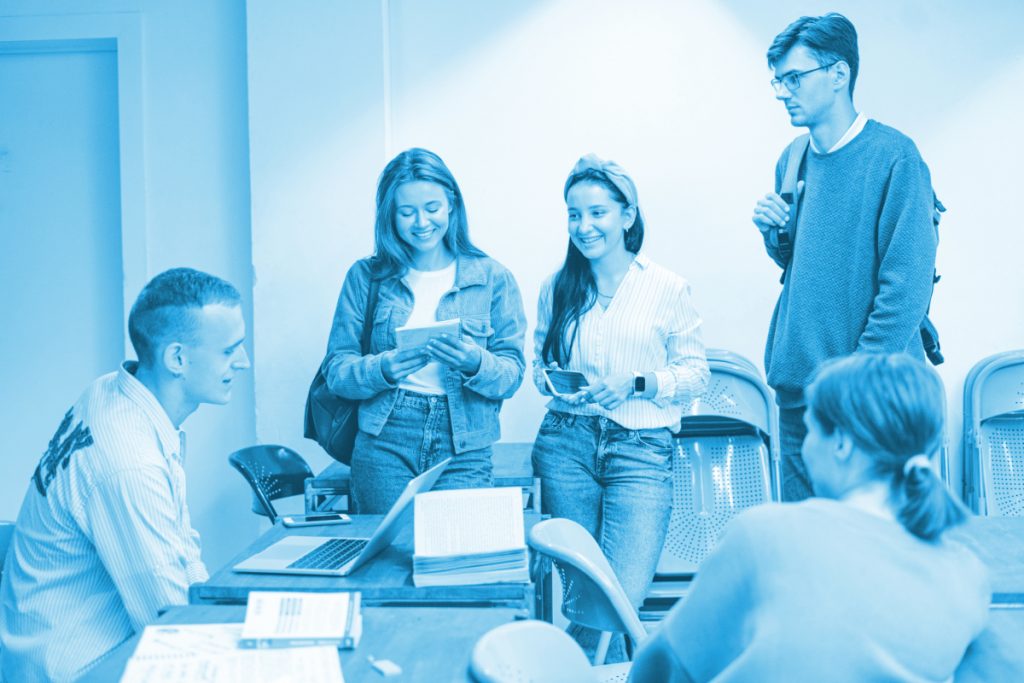Training the next generation of researchers in autotrophic biotechnology
The EJD ConCO2rde provides research ideas and guidance for a transformational journey of 11 ESRs toward the ability to produce original research combined with transferable skills to prepare them for a successful career in the European Biotech sector.

This pioneering EJD program will train the first generation of scientists in autotrophic biotransformations with skills in synthetic biology, enzyme catalysis and process engineering to address the development of most advanced gas-driven whole-cell reactions for chemical manufacturing at large scales. That requires an interdisciplinary and intersectoral approach and training, which will involve both female and male executives in the academic research and industrial environment.
All our ESRs will receive periodic and specialised guidance from our hosting institutions and associated partners under their Individual Research Projects. Moreover, ESRs will work in different working environments, both academic and non-academic.
Our training goals:
- Training the first generation of scientists in autotrophic biotechnology
- Providing excellent trained researchers to academic and private institutions across Europe Raising new opportunities in a global job sector
- Creating networks of young researchers in the European Biotech sector
- Equipping young scientis with a transferable skillset for in-front line careers

Network-wide training
We have designed a structured training program for all 11 ESRs in the spirit of the Principles for Innovative Doctoral Training offering scienti!c knowledge at key Xelds of biotechnology (synthetic biology, metabolic engineering, biocatalysis, process analytics, process engineering) and transferable skills (entrepreneurship, gender awareness, mentoring, management skills, ethics, digitalization of science) to train young scientists to bridge the gap between synthetic and process engineering by providing skills needed to develop and implement new, sustainable biotechnological processes.
These training schools will foster the dissemination of research results, implement strong networking structures and increasing exchange of expertises between academia and industry.
Our training goals
We have planned 8 workshops to teach knowledge by supervisors, ESRs, partner organisations and external teachers, covering scientific and transferable skills. In addition, our ESRs will get the chance to visit the reaserach facilities of soem of our industrial partners and to discuss with experts from industry the usefulness of the developed concepts within ConCO2rde.
Highschool student workshop
Addressing high-school-students is a particular concern of ConCO2rde, both in light of the currently very successful pressure of Fridays for the Future on decision makers, and in view to motivate young people to pursue a career in science. As a highlight, the PIs and ESRs will organize an international high-school student workshop on biotechnological CO2-fixation with discussions, presentations and small laboratory demonstrations (complying with security rules) to train the ESRs in communication skills towards a public audience.
Final conference
In our last event, the ESRs will be deeply involved in the promotion and organisation of an international conference related to the topic of ConCO2rde. Thus, this will be an excellent exercise of a team-effort collaborative task and a fruitful experience in order to contact some of the most prominent scientists of the field, what will be advantageous for ESRs in order to establish possible future academic or industrial post-docs/jobs.
Local training
All beneXciaries of ConCO2rde have graduate schools (or are attached to the local graduate schools), including thesis supervisory boards and other important elements. The secondments of 6-12 months at the Cotutelle partner Universities allows to attend theoretical/seminar courses which are mandatory according to the regulations of the local doctoral schools and will ensure that our ESRs obtain ECTS towards their PhD degree. These courses nicely complement the structured training schools of ConCO2rde.
